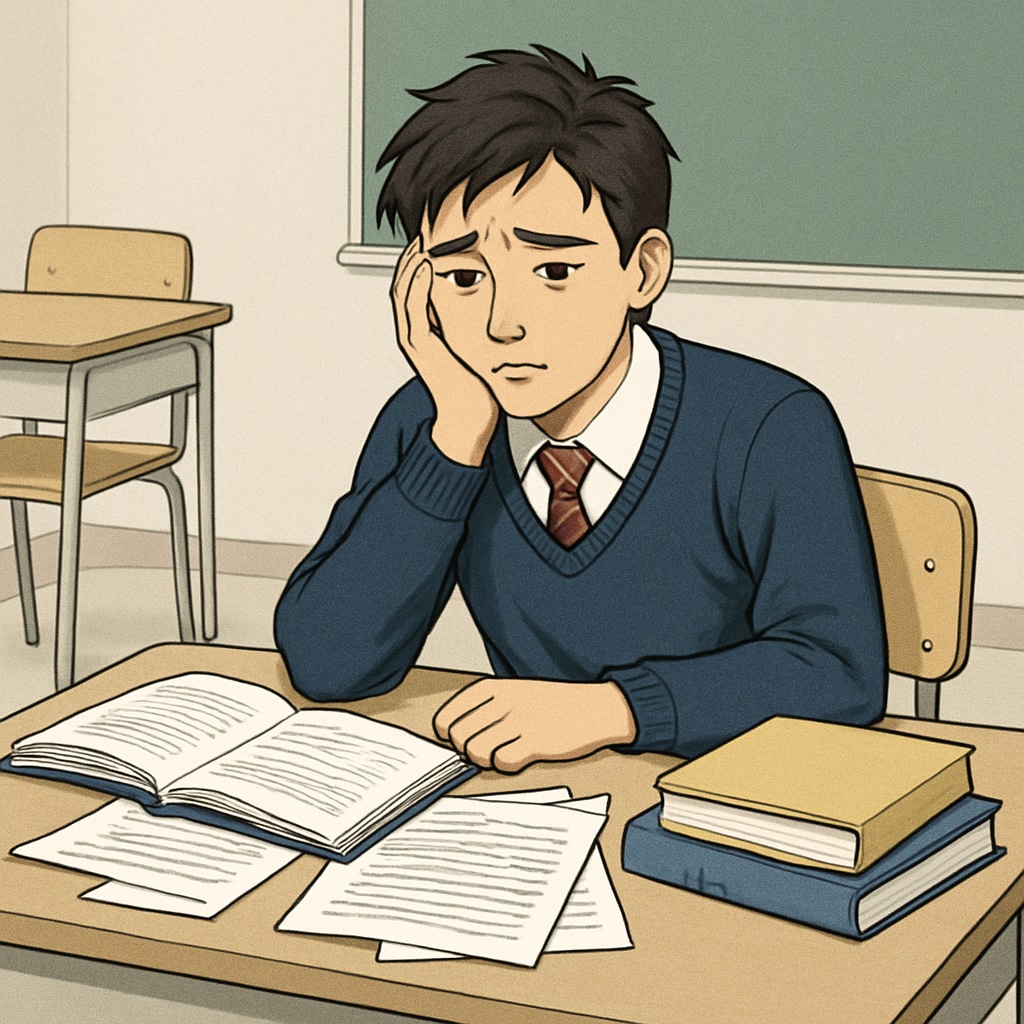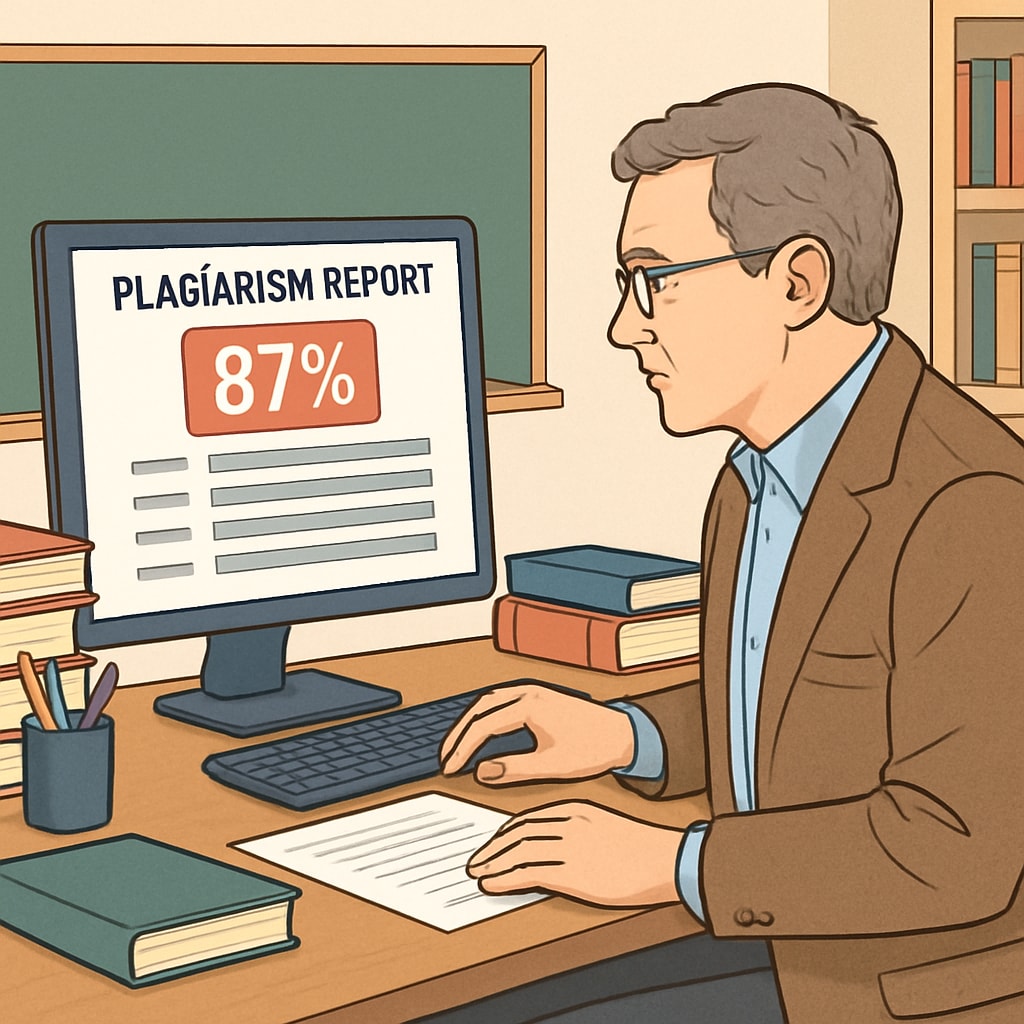Academic integrity is a cornerstone of education, ensuring fairness and trust in the pursuit of knowledge. However, what happens when this system is misused or falls short? The issue of professors wrongly accusing students of plagiarism has exposed significant gaps in how academic misconduct is identified and handled. Such accusations, when unfounded, can have a profound psychological impact on students and may stifle their creativity. This article delves into the fragility of academic integrity systems in K-12 education and advocates for reforms to ensure fairness and transparency.
Understanding the Complexity of Plagiarism Accusations
Plagiarism, which involves presenting someone else’s work as one’s own, is a serious offense in academic settings. Professors play a vital role in maintaining academic integrity by identifying and addressing instances of plagiarism. However, this responsibility comes with challenges. Determining plagiarism often relies on subjective judgment or automated tools, both of which can lead to errors. For instance, tools like Turnitin may flag work as plagiarized due to common phrases, even when no actual misconduct has occurred.
In addition, biases—whether conscious or unconscious—can influence how accusations are made. A student’s background, writing style, or even prior interactions with a professor can sometimes lead to unfair scrutiny. This raises the question: are current methods of detecting plagiarism truly reliable?

The Psychological Impact of False Accusations
Being falsely accused of plagiarism can be a deeply traumatic experience for students, especially in their formative years. The stigma associated with such accusations can lead to long-lasting effects, including anxiety, loss of self-confidence, and a sense of alienation. For younger students in K-12 education, these consequences can be even more damaging, as they are still developing their identity and self-esteem.
Moreover, the fear of being wrongly accused may discourage students from taking intellectual risks or pursuing innovative ideas. This is particularly troubling in educational environments that aim to foster creativity and critical thinking. How can students feel empowered to contribute original ideas when they fear penalization for perceived misconduct?
Consider this: a student who spends hours researching and writing a unique paper may find themselves accused of plagiarism simply because their work aligns too closely with existing sources or a professor’s subjective expectations. Such situations not only harm the accused individual but also undermine the credibility of the academic system as a whole.

Building Fair and Transparent Academic Integrity Systems
To address these challenges, it is essential to reform how academic misconduct is identified and managed. A robust, fair, and transparent system can ensure that both professors and students are protected. Here are some recommendations:
- Improved Training for Educators: Professors should receive regular training on identifying plagiarism and using detection tools responsibly. This includes understanding the limitations of automated systems and recognizing potential biases in their judgment.
- Clear Policies and Guidelines: Schools should establish clear definitions of plagiarism and provide examples of what constitutes academic misconduct. This ensures that both students and educators have a shared understanding of expectations.
- Due Process for Accused Students: Students accused of plagiarism should have the opportunity to present their case and provide evidence of their original work. A fair appeals process is critical to ensuring justice.
- Encouraging Academic Honesty Through Education: Instead of focusing solely on punishment, schools should emphasize the importance of academic integrity through workshops, seminars, and mentorship programs.
By implementing these measures, educational institutions can create an environment where academic integrity is upheld without compromising the rights of students.
Rebuilding Trust in the Academic System
Ultimately, academic integrity is a shared responsibility between students, educators, and institutions. When professors wrongly accuse students of plagiarism, it undermines this trust and damages the educational experience. Addressing these issues requires a commitment to fairness, transparency, and continuous improvement.
By fostering an environment that values both integrity and innovation, we can ensure that students feel supported in their academic journey. As a result, they will be more likely to contribute positively to the world of knowledge, free from the fear of unjust accusations.
In conclusion, while academic integrity remains a vital principle, it must be balanced with fairness. Protecting students’ rights and promoting an open, honest dialogue about plagiarism will strengthen the educational system for all participants. Let us prioritize reforms that safeguard both the integrity of academia and the dignity of its learners.
Readability guidance: The article uses short paragraphs, incorporates lists for clarity, and balances technical insights with accessible language. Transition words like “however,” “in addition,” and “as a result” are used to ensure a smooth reading experience.


